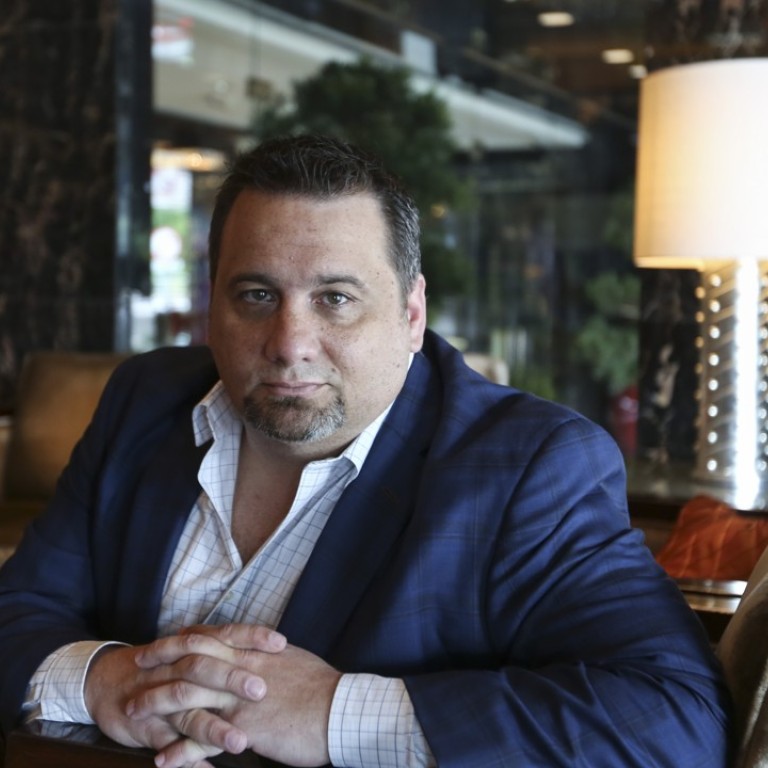
Short-seller FG Alpha reiterates case against Fullshare, citing recent filings
Short-seller Daniel David’s FG Alpha Management has a bearish position in Hong Kong-listed Fullshare, citing a recent filing in the British Virgin Islands regarding two property projects
Mainland property developer Fullshare Holdings continues to draw flak from a prominent short-seller after FG Alpha Management reiterated on Thursday its view that the company failed to make an important disclosure on a questionable transaction, citing a recent filing in the British Virgin Islands.
Daniel David, chief investment officer at FG Alpha and co-founder of research outfit GeoInvesting, said Fullshare was still holding shares pledged by the buyer of two property projects even though it claimed to have already received payment for the companies last year.
“As of May 2017, according to the British Virgin Islands filings, the pledge was not released,” he told the South China Morning Post in an interview on Thursday.
Hong Kong-listed Fullshare ended 0.6 per cent higher at HK$3.17 on Thursday.
Earlier this year, short-seller Glaucus Investments released a research report alleging share trading manipulation involving Fullshare.
David said his hedge fund, based in Skippack, Pennsylvania, had a bearish stock position in Fullshare.
FG Alpha said in a report published on May 30 that the British Virgin Islands filing raised questions whether the buyer, Sun Field Property Holdings, “ever actually paid Fullshare” for the two companies.
They include Active Mind, which owns 90 per cent of a residential-commercial property project in Shenyang, Liaoning province, and Advance Goal, which owns 90 per cent of a property project in Xiaogan, Hubei province.
“If Sun Field did not pay Fullshare [for the two firms], it theoretically means Fullshare issued shares to Zall Group for free,” the FG Alpha report said. “We suspect the final beneficial owner of Sun Field ... is a person or persons close to Zall or Fullshare.”
In June 2015, Fullshare bought 90 per cent of both projects from Zall for 736 million yuan (US$108.3 million), which it paid for by issuing 681 million shares at HK$1.35 each.
Five months later, the firm struck a deal to sell the projects to Sun Field, an independent third party, for 859 million yuan. The bulk of the price would be paid within 180 days and the stakes would be mortgaged to Fullshare before it is paid up.
The payment was subsequently fully made, Fullshare said in its 2016 annual report, which did not mention whether the stake pledge was released as a result of the payment.
FG Alpha also said its researchers had visited the two projects and found evidence suggesting they were still owned and managed by Zall.
It cited a local government notice in April 2016 as saying part of the Hubei project was stalled amid the economic downturn.
For the Shenyang project, FG Alpha said its ground research showed it was still “wholly managed” by Zall.
Asked whether the share pledge had been released and whether the two projects were still managed by Zall after the sale, Fullshare’s spokesperson declined to comment.
Zall’s chief financial officer Gavin Zhu Guohui told the Post that it was “not uncommon” for mortgage pledges not to be released due to “oversight”.
Sun Field last year sold stakes in the two projects to Zall’s co-chairman Yan Zhi, he added.
Shares in Zall ended 1.1 per cent lower at HK$4.51 on Thursday.
In April, Glaucus released a report alleging trading in the shares of both Fullshare and Zall had been manipulated since November.
It also claimed that the manipulation of Zall’s shares enabled Fullshare to book huge unrealised accounting gains, substantially bolstering the bottom line of the company, which had only modest underlying profit from core operations.
Fullshare said the accusations by Glaucus were “groundless”.
It also denied allegations by Glaucus that it had flouted listing rules by engaging in multiple undisclosed disposals and acquisitions involving related parties.
Asked why short-sellers have in recent months made more high-profile bets on targets in Hong Kong, David attributed the trend to unreasonably high valuations, poor corporate governance and a failure by regulators and independent directors to conduct appropriate checks.
“These are recipes for fraudulent behaviour,” he said.
FG Alpha spent US$100,000 to US$500,000 researching each target and had been looking into Fullshare for about three months, he added.

